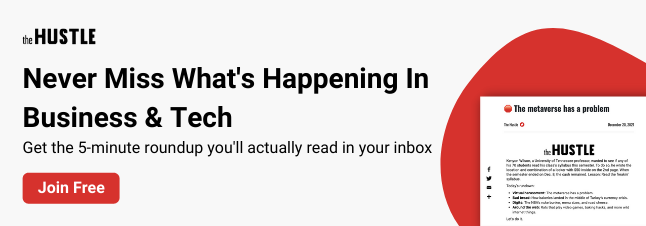Smartphone notifications. Pending deadlines. Messy to-do lists. The endless distractions can make it tough to stay on top of everything that you have to do.

However, with the right productivity skills, you can get a better handle on your time and production.
Sounds like more work, but it can make work-life balance easier when you focus on skills that can improve your work habits.
What are productivity skills?
Productivity skills are those skills that people use to manage their time, resources, and tasks effectively. In the business world, these skills help you achieve optimal efficiency, master time management, and realize business goals. By honing your productivity skills, you can optimize your workflow, prioritize your tasks, and make informed decisions — ultimately boosting your productivity and goal attainment.
Top skills you need to improve your productivity
Understanding the skills needed to become more productive will give you a road map for improving your workflow to get things done. Here’s an overview of the various skills you can develop and hone to be more productive at work.
Stress management skills
For some workers, stress and work have become synonymous. According to a Gallup poll, 57% of American and Canadian workers reported feeling daily stress, and another 65% said stress caused difficulties in their lives.
Some may be stressed from lack of control, workloads, or insufficient resources. Whatever the reason, knowing how to manage stress can help workers overcome this barrier that eats away at their productivity.
When workers are stressed, it’s difficult for them to focus on their tasks. Tips for improving stress management include:
- Practice mindfulness: Set aside a few minutes daily to engage in mindfulness exercises, such as deep breathing or meditation. Focus on the present moment and observe your thoughts and emotions without judgment.
- Exercise regularly: Add physical activity to your routine. Aim for at least 30 minutes of exercise five to seven days a week. Choose activities you enjoy, such as walking, jogging, yoga, or dancing.
- Prioritize self-care: Take care of your physical and mental well-being by getting enough sleep, eating nutritious meals, and engaging in activities that bring you joy and relaxation.
- Seek social support: Connect with friends, family, or support groups to share your feelings and experiences. Having a strong support system can help alleviate stress and provide perspective.
- Take breaks: Schedule regular breaks throughout the day to rest and recharge. Use this time to engage in activities that help you relax and clear your mind.
Time management skills
When time gets away from you, it can leave you stressed and scrambling to get things done. If this is a common scenario for you, productivity is scarce because you’re constantly playing catch-up. Not a way to get ahead in your career or business.
The best way around this is to develop your time management skills. Here are several tips:
- Prioritize tasks: Create a to-do list and rank tasks based on importance and urgency to focus on high-priority items and avoid wasting time on less important tasks.
- Set realistic deadlines: Be honest about task completion time, avoid overcommitment or underestimation, and include buffer time for unexpected interruptions or delays.
- Break down projects: Divide large projects into smaller tasks to reduce overwhelm, manage stress, and maintain a sense of progress.
- Minimize distractions: Turn off phone notifications, close unnecessary browser tabs, and create an organized workspace to reduce distractions and improve focus and productivity.
- Use time-blocking: Allocate specific time blocks for tasks to create structure, prioritize important tasks, and avoid multitasking for increased efficiency.
Prioritization skills
Is that task really urgent, or is there something else you should be doing to move your projects forward? Prioritizing the wrong tasks can leave you checking off items on your to-do list without getting your most important work done.
To improve your ability to prioritize, you can use the following tips:
- Consider deadlines: Consider the deadlines associated with tasks and prioritize accordingly. For instance, if you have a report due tomorrow and a presentation to prepare for next week, it makes sense to prioritize the report to ensure it’s completed on time.
- Identify dependencies: Recognize tasks that are dependent on others and prioritize them accordingly to ensure smooth workflow. For example, if you need input or approval from a colleague before proceeding with a task, prioritize it to avoid delays in the overall project timeline.
- Focus on high-impact tasks: Prioritize tasks with a significant impact on your goals or objectives to maximize productivity and results. For instance, if you’re launching a new product, prioritizing tasks related to product development, marketing, and sales would be crucial for its success.
- Reevaluate and adjust: Regularly review and reassess task priorities based on changing circumstances or new information. For example, if a new urgent task arises or you receive updated instructions from your supervisor, reevaluate your task priorities and make necessary adjustments to ensure you’re always working on the most important tasks.
Distraction management skills
The things that distract you from your work depend on your work environment. If you work from home, it may be crying children, barking dogs, or household chores; in the office, it might be watercooler talk during non-breaks, loud-talking colleagues, and co-workers popping in to ask a “quick” question.
Some of these things are unavoidable, but it doesn’t mean you can’t learn how to manage them. Here are several tips to minimize distractions during your workday:
- Set clear boundaries: Establish boundaries with colleagues, family, or friends to minimize interruptions during focused work time.
- Practice time blocking: Allocate dedicated time blocks for focused work and avoid multitasking to stay focused and minimize distractions. To maximize productivity, monitor when distractions normally occur (morning, after lunch break, etc.) to plan time blocks accordingly.
- Use technology wisely: Use productivity tools or apps to manage distractions, such as website blockers or notification management tools.
- Create a distraction-free zone: Designate a specific area or workspace where distractions are minimal, such as a quiet room or a dedicated office space.
- Seek accountability and support: Share your distraction management goals with a trusted colleague, friend, or mentor who can provide support and hold you accountable for staying on track.
Problem-solving skills
Miscommunications or ineffective communication can cause misunderstandings and conflicts, which ultimately lead to work delays.
If you can improve your problem-solving skills, you can effectively identify problems and develop practical solutions to overcome them before they eat at your productivity.
- Define the problem: Clearly define the problem you’re trying to solve. Break it down into smaller, manageable components to gain a better understanding of the underlying issues.
- Brainstorm creative solutions: Encourage brainstorming sessions to generate a wide range of potential solutions. Encourage creativity and think outside the box to explore innovative approaches.
- Evaluate your options: Assess the pros and cons of each potential solution. Consider factors such as feasibility, cost, impact, and long-term sustainability to determine the most effective option.
- Prioritize and take action: After identifying the best solution, prioritize the necessary steps to implement it. Break down the solution into actionable tasks and set realistic deadlines.
- Seek feedback and collaboration: Don’t be afraid to seek feedback from colleagues or subject matter experts. Collaboration can bring fresh perspectives and insights that may lead to better solutions.
- Monitor progress and adapt: Continuously monitor the progress of your problem-solving efforts. Be open to making adjustments and adapting your approach if needed.
- Reflect and learn: After solving a problem, take the time to reflect on the cause and process. Identify lessons learned and areas for improvement. Apply these insights to future problem-solving situations.
Productivity skills examples
Learning tips to improve productivity is helpful. But if you need more inspiration, there are some examples below.
Stress management
Emma is feeling overwhelmed with work and experiencing high levels of stress. To manage her stress, she incorporates short breaks throughout the day. During these breaks, she practices deep breathing exercises and briefly walks outside to clear her mind. Additionally, she sets boundaries by scheduling regular time for self-care activities, such as yoga or reading, to help her relax and recharge outside of work hours.
Distraction management
Mark is working on a complex report that requires deep concentration. He notices that even though his phone is in silent mode, he still gets distracted by the constant urge to check it for messages or notifications.
To manage this subtle distraction, Mark decides to turn his phone face down and place it in a drawer, out of sight. By removing the visual reminder of his phone, he can fully immerse himself in the task at hand without the temptation to constantly check for updates. This helps him maintain focus and productivity throughout the work session.
Prioritization
John has a long list of tasks to complete for the day, but he’s unsure where to start. To prioritize effectively, he uses the Eisenhower Matrix. He categorizes tasks into four quadrants: urgent and important, important but not urgent, urgent but not important, and neither urgent nor important. By identifying the tasks that are urgent and important, he knows which to tackle first and can allocate his time and energy accordingly.
As you begin practicing your productivity skills, remember there’s no one-size-fits-all approach. Find different techniques and tools to make it easier to maintain distraction-free, highly focused work sessions.





 (1).png)
 (1).png)






